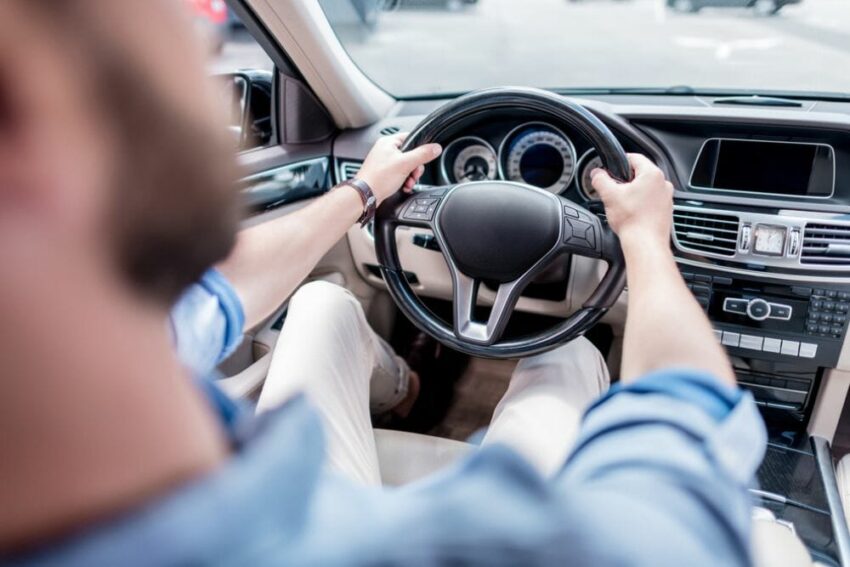
11 May Why Is Your Car Making Loud Noise When Accelerating?
Have you ever noticed your car making a loud noise when you accelerate? It can be quite concerning, especially if you’re not sure what’s causing the sound. In this article, we will explore the possible reasons why your car is making a loud noise when accelerating, and what you can do to fix it. The content is created by Tradecarhub.
As a car owner, it’s important to understand the various sounds your car makes and what they mean. While some noises are harmless, others can indicate a serious problem with your vehicle. If you hear a loud noise when you accelerate, it’s important to address the issue promptly to avoid further damage to your car.
Possible Causes of a Loud Noise When Accelerating

Image source: Google.com
1. Exhaust System Issues
One of the most common reasons for a loud noise when accelerating is a problem with the exhaust system. A damaged or faulty muffler or exhaust pipe can cause a loud rumbling or rattling noise when you step on the gas pedal. The sound may be more noticeable when you’re driving at higher speeds. Check out: HOW LONG CAN A CAR SIT IN COLD WEATHER
2. Engine Problems
Another possible cause of a loud noise when accelerating is an issue with your car’s engine. For instance, if your engine’s timing is off, it may cause a knocking or pinging sound when you accelerate. Similarly, if there is a problem with the fuel injection system, it can cause a loud hissing noise.
3. Transmission Issues
Your car’s transmission is responsible for transferring power from the engine to the wheels. If there is a problem with your car’s transmission, it can cause a loud noise when you accelerate. For example, a damaged or worn-out clutch can cause a loud screeching or grinding noise when you shift gears.
4. Worn-Out Brakes
Another possible cause of loud noise when accelerating is worn-out brakes. If your brake pads or rotors are worn, it can cause a loud grinding or squealing noise when you apply the brakes. The noise may also be more noticeable when you’re accelerating, as the engine noise is quieter at lower speeds.
5. Loose or Damaged Belts
If your car’s belts are loose or damaged, it can cause a loud squealing noise when you accelerate. This is because the belts are slipping on the pulleys, which creates friction and causes noise. It’s important to address this issue promptly, as loose or damaged belts can also cause other problems with your car’s engine.
6. Low Oil Pressure
If your car is low on oil or has low oil pressure, it can cause a loud knocking or ticking noise when you accelerate. This is because the engine is not getting enough lubrication, which can cause damage to the internal components of the engine.
How to Fix a Loud Noise When Accelerating
The best way to fix a loud noise when accelerating is to identify the underlying cause and address it promptly. If you’re not sure what’s causing the noise, it’s best to take your car to a trusted mechanic for diagnosis and repair. Here are some possible solutions based on the causes we’ve discussed:
1. Exhaust System Issues
If the loud noise is caused by a problem with your car’s exhaust system, you may need to replace the muffler or exhaust pipe. In some cases, a loose or damaged exhaust hanger may also cause noise, which can be fixed by tightening or replacing the hanger.
2. Engine Problems
If the loud noise is caused by an issue with your car’s engine, you may need to replace or repair the affected component. For instance, if the timing is off, you may need to have the timing belt or chain replaced. If there is a problem with the fuel injection system, you may need to have it inspected and repaired by a mechanic.
3. Transmission Issues
If your car’s transmission is causing the noise, you may need to have it inspected and repaired by a professional mechanic. Depending on the severity of the issue, you may need to have your transmission rebuilt or replaced entirely.
4. Worn-Out Brakes
If the noise is caused by worn-out brakes, you’ll need to have your brake pads and rotors replaced. This is a relatively simple fix that can be done by a mechanic or even at home if you have the right tools and experience.
5. Loose or Damaged Belts
If your car’s belts are loose or damaged, they’ll need to be tightened or replaced. This is a relatively easy and inexpensive fix that can be done by a mechanic.
6. Low Oil Pressure
If your car’s engine is low on oil or has low oil pressure, you’ll need to have it inspected and repaired immediately. Depending on the cause of the low oil pressure, you may need to have the oil pump, oil filter, or oil pressure sensor replaced.
Conclusion
A loud noise when accelerating can be quite concerning, but it’s important not to ignore it. By identifying the underlying cause of the noise and addressing it promptly, you can avoid further damage to your car and ensure it runs smoothly for years to come. Remember to always take your car to a trusted mechanic for diagnosis and repair, and don’t hesitate to ask questions if you’re unsure about anything.


Sorry, the comment form is closed at this time.